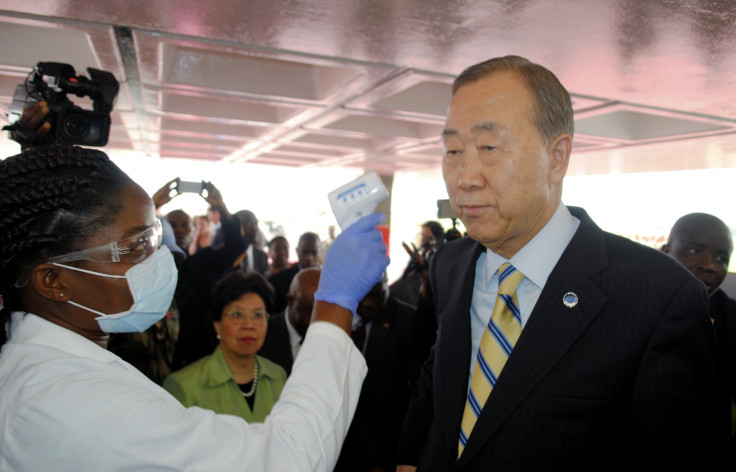Ebola Crisis Update: UN Chief Urges West Africa To Set Aside Cultural Traditions To Conquer Epidemic

United Nations Secretary-General Ban Ki-moon is urging West Africans to abandon traditional cultural practices that may help spread the Ebola virus. The U.N. chief made the remarks as he arrived in Liberia on Friday on the first stop of his tour of West African nations ravaged by the epidemic that has killed nearly 7,000 people, according to the most recent estimates from the World Health Organization.
"We would like to urge local communities that this is a temporary operation and we fully respect the cultural traditions, but at this time, it is important to abide by health protocols," Ban said in comments reported by Reuters. "Our goal is to see the last case identified and cured."
The virus is transmitted through physical contact with bodily fluids, which has posed a problem across the West African region, where common religious and cultural practices, including the burial of dead bodies, often involve close physical contact, according to the BBC. Health organizations such as Doctors Without Borders have been trying to raise awareness about the risks of these practices.
Due to the fact that this is the first outbreak of the virus in the region, West Africans have not been as exposed to the health precautions that have been widely disseminated in other areas with a history of Ebola outbreaks (e.g., Uganda, the Democratic Republic of Congo). U.N. officials have said that people in the worst-hit countries of Liberia, Guinea and Sierra Leone have been slow to adapt their cultural practices in the face of the Ebola threat, according to Reuters.
The U.N. chief’s visit comes a year after the outbreak began in Guinea amid sharp criticism from nongovernmental organizations who are rebuking U.N. agencies such as WHO for being too slow to respond to the crisis, according to the Agence France-Presse. The secretary-general is set to travel to Guinea and Sierra Leone in addition to Mali, where the U.N.’s Ebola crisis response center is headquartered.
© Copyright IBTimes 2024. All rights reserved.






















